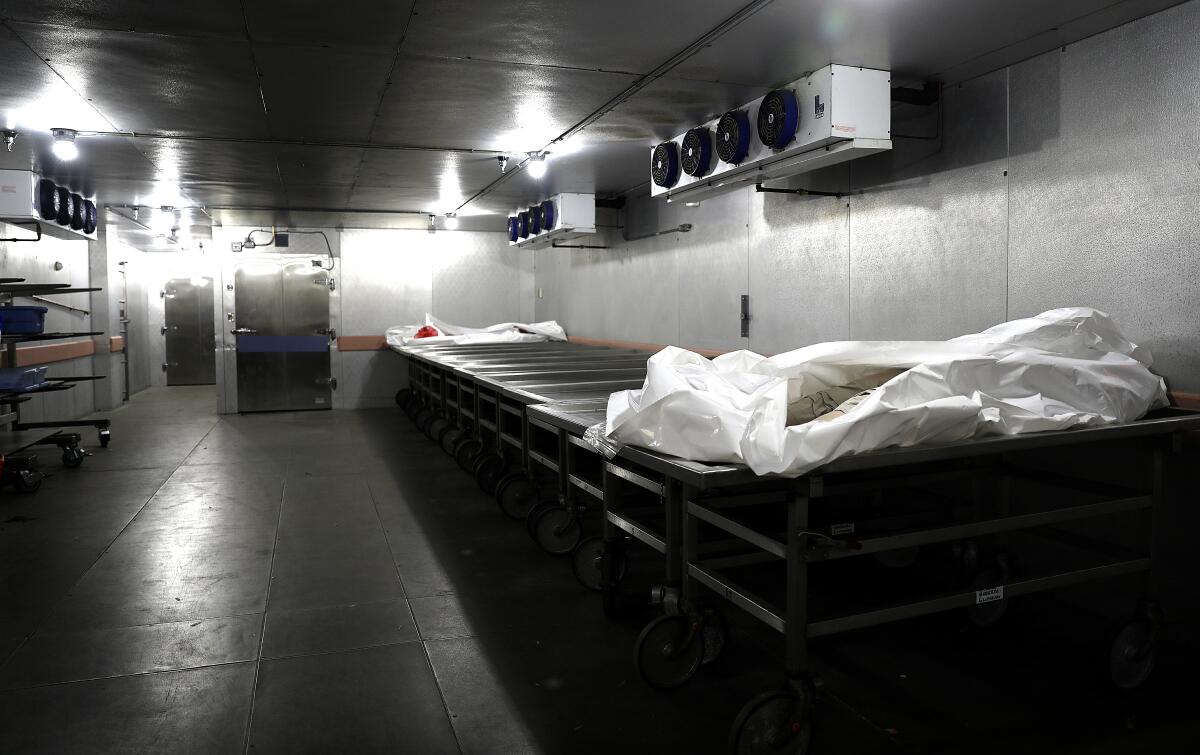Letters to the Editor: They signed up to donate organs, not tissues to be sold for profit

- Share via
To the editor: I have carried a organ donor card in my wallet for 40 years. The No. 1 item on my bucket list has always been saving another person’s life, even if that happens only after my death. This has been a sacred trust to me.
After reading the Los Angeles Times’ investigation of organ harvesting companies’ relationships with medical examiners and coroners, I tore up my donor card. I now carry a note in my wallet saying that I am not a donor and refuse any permission given on my behalf to recover any of my organs or other body parts.
I long to save a life, but not by becoming part of some vast, ghoulish, money-making business selling human body parts for profit. To me, this is akin to grave robbing, but without the need to dig anybody up. I would like to know how many of those whose bodies were “harvested” had donor cards. How many grieving relatives were bulldozed into giving permission for a harvest?
I’ll be here for a friend or a family member who needs one of my kidneys or a piece of my liver in order to survive. I will donate while I’m alive, but not after I’m dead.
Lori McCaffery, Laughlin, Nev.
..
To the editor: The Times’ investigation implied that organ and tissue donations commonly interfere with death investigations. Examples were presented where the autopsy identified the cause of death, but the manner of death (whether accident or homicide) could not be determined.
The manner of death is largely dependent on the investigation, not the autopsy, so the implication that the donation interfered with that conclusion is misleading.
The article mischaracterized medical literature. The cited paper from 2007 supported having cardiac pathology examination of hearts donated for valves, even though donation would affect the examinations for some very rare conditions.
The National Assn. of Medical Examiners supports organ and tissue donation, which provides skin grafts for burn victims, bones for orthopedic procedures, and corneas to save sight. With cooperation and communication, donation can be accomplished without compromising death investigations.
Dr. Jonathan L. Arden, McLean, Va.
The writer is president of the National Assn. of Medical Examiners.
..
To the editor: Thanks to The Times for this important investigation. Too many cases are and will continue to be unresolved until this practice is better regulated.
As stated in the initial article, “A single body can supply raw materials for products that sell for hundreds of thousands of dollars.” This money belongs to the families of the deceased, not the harvesters.
Survivors, lawyer up. Legislators, take note.
Michael Sachs, Santa Monica
..
To the editor: A salient point in this fascinating series is the amount of financial rewards accruing to the companies that sell procured human tissue. For example, a Virginia company, Life Net Health, reported receiving $297 million in 2016 from the sale of “harvested bone, skin and other tissues.”
As such companies “describe themselves as charities and must register as non-profits under the law,” they pay no income taxes and can easily afford to “pay top executives more than $1 million a year.”
No wonder they can afford expensive lobbying campaigns to seek even greater access to corpses.
Noel Johnson, Glendale
More to Read
A cure for the common opinion
Get thought-provoking perspectives with our weekly newsletter.
You may occasionally receive promotional content from the Los Angeles Times.









